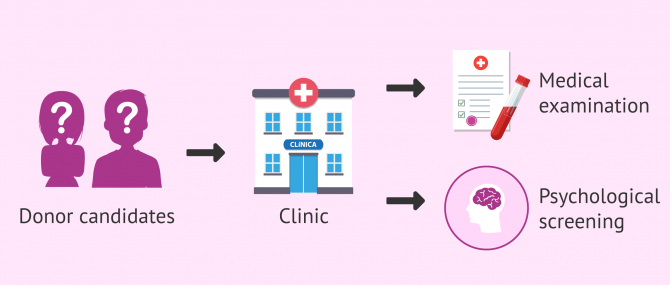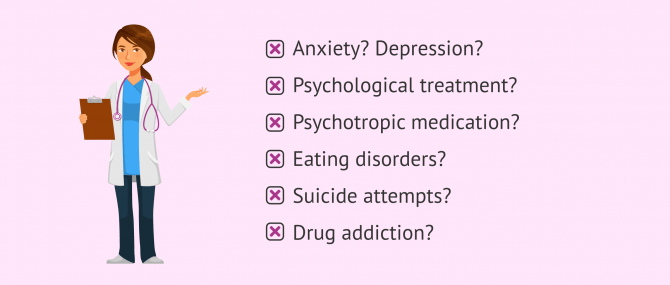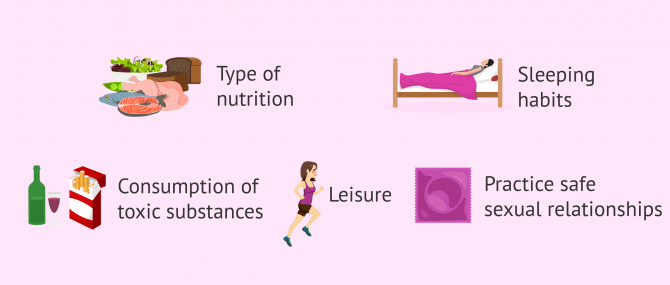One of the questions often asked by future parents who undergo fertility treatment with gamete donation is whether the mental health of the donors has been checked.
Actually, a candidate’s mental health history is one of the key factors that disqualify them from donating eggs or sperm, respectively.
The U.S Food and Drug Administration (FDA) has established strict rules and regulations when it comes to gamete donations. Both egg and sperm donors have to undergo a rigorous psychological screening which consists of a psychological interview that can even identify signs of undiagnosed mental health issues.
Provided below is an index with the 8 points we are going to expand on in this article.
- 1.
- 1.1.
- 2.
- 3.
- 4.
- 5.
- 5.1.
- 5.2.
- 5.3.
- 5.4.
- 6.
- 7.
- 8.
Current situation
When a woman or man makes the decision to donate their gametes, the first thing to do is to visit a fertility clinic or an egg and/or sperm bank where, in addition to medical tests, gamete donor candidates must also pass a psychological evaluation.
In terms of psychological control, it is important to evaluate the current situation of the potential donor. The specialist will ask several questions to find out his or her current emotional state, tracking possible symptoms of anxiety, depression, OCD (obsessive-compulsive disorder), and bipolar disorder.
Besides, he/she will also inquire about the stability of the candidate's situation in terms of employment, resources, residence, friendships and romantic relationships, support from family and friends, etc.
Family history
Similarly, it is important to inquire into the family history of the potential donor in matters related to:
- Diseases such as Down's Syndrome, intellectual disability, epilepsy, autism, hyperactivity, Alzheimer's at an early age..
- Suicide, drug addiction, alcoholism...
The specialist will also ask about any family history of psychological/psychiatric disorders, or if there has been treatment, admission, or medication for psychological/psychiatric reasons.
Psychiatric and psychological history
Once information about the current situation and family history has been gathered, the specialist will take note of the potential donor's psychiatric status. In particular, the specialist will be interested in:
- Incidence of disorders such as anxiety, depression, neurosis, OCD, bipolar disorder, schizophrenia..
- Need for previous psychological or psychiatric treatment, why you received it, for how long, and how it was cured.
- Current or previous intake during a certain period of time of psychiatric medication (anxiolytics, antidepressants, sleeping pills...)
- Eating disorders: bulimia, anorexia..
- Suicide attempts.
- Drug addiction.
In addition, the psychologist will assess whether you have overcome life crises and how you have dealt with them, whether you have achieved or are on the way to achieving your goals and, if not, why not.
In the same way, the specialist will check if you are and have been a stable person if you come from a structured family or not... and will carry out a personality study (positive vs negative approach to life, decision-making, assertiveness, self-esteem...)
Lifestyle habits
The donor's lifestyle is analysed in relation to aspects such as:
- Type of food: if it is varied, complete, sufficient, healthy... If you are at your ideal weight according to your body constitution.
- Sleep: if it is regular, restorative, if it has alterations (insomnia, terrors, wakefulness...)
- Consumption of intoxicants: alcohol, tobacco, drugs.
- Leisure: hobbies, sports, socializing..
- Safety practices in your sex life.
In this way, the specialist will be able to get an idea of the physical condition of the potential donor.
Motivation for donation
The clinic staff asks you about aspects related to the donation itself:
- What's your motivation for donation.
- What position you would take in terms of what you are donating and with respect to the possible future child that could be born as a result of your donation.
- Whether the decision has been communicated to your closest people and what their opinion is.
The specialist also checks whether you have been adopted (in which case family tracing could not be done and they could not be donors) and whether you have donated before.
Finally, you will be required to sign that all the information you provide is true and that you thoroughly informed of the legal repercussions of providing false information.
FAQs from users
What steps should a woman follow before donating eggs?
Before donating eggs, the first thing to do is to become well informed about the process, the implications, and the legislation in the respective country.
There are laws that state that the donation must be altruistic, anonymous and that women must be between 18 and 35 years old. In some other countries such as the U.S., however, egg donors are eligible for economic compensation.
Potential egg donor candidates must follow four main steps:
- Physical and psychological screenings.
- Ovarian stimulation.
- Ovum pick-up.
- Control ultrasound.
Can a gamete donor be excluded during a psychological screening?
Yes, since gamete donors have to show good psychophysical health.
This means that if a potential donor does not obtain a favorable result in the previous psychological studies, he/she is considered unfit for donation.
What is the price of psychological control for gamete donors?
The psychological study performed on gamete donors is free of charge.
Likewise, the consultations and analyses that are performed prior to sperm and egg donation are also free of charge.
What tests are performed on gamete donors?
To be an egg or sperm donor it is necessary to have a very good oocyte or sperm quality. Karyotype tests, most frequent genetic diseases and sexually transmitted diseases are also performed to guarantee the quality of the gametes.
Finally, an in-depth psychological interview is included to rule out any psychological alteration. Once all these tests have been passed, the candidates will be accepted as egg or sperm donors.
Suggested for you
If you want to learn more about the actual process of egg donation, you can visit this link: Egg donation: requirements, procedure, and compensation.
If you are going to undergo IVF treatment with sperm donation and you need to read more in-depth about this topic, we recommend you to click on this link: IVF with sperm donation: process and success rates.
We make a great effort to provide you with the highest quality information.
🙏 Please share this article if you liked it. 💜💜 You help us continue!
References
Authors and contributors







